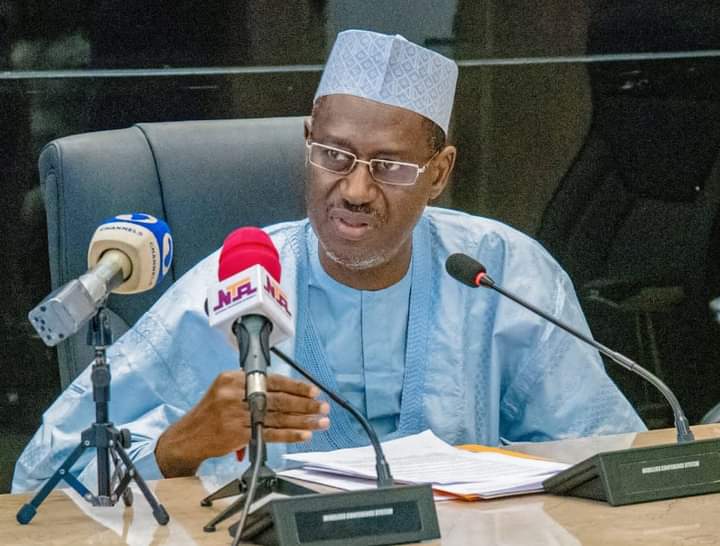The Minister of Housing and Urban Development, Ahmed Dangiwa, expressed concern on Monday that 80% of Nigerians cannot afford housing due to financial constraints. This, he noted, is a major factor contributing to the housing deficit in the country.
Dangiwa made these remarks during his keynote address at the opening of the inaugural Kaduna International Housing Exhibition, held at Umaru Musa Yar’Adua Hall in Kaduna. He emphasized that the primary challenge governments at all levels must address to deliver sustainability to citizens is affordability.
He cited statistics indicating that nearly half of Nigeria’s population of over 200 million are poor and have weak purchasing power. “In fact, of the 43 million households, over 85% have less than ₦1.1 million in purchasing power. Of these, 40% (about 17.2 million households) fall into the poverty income group, and 47% (about 20.2 million households) fall into the low-income group,” Dangiwa said.
He further noted, “Overall, statistics reveal that Nigeria is a low-income country, with only 13% of its population being middle class. Recent macro-economic challenges, including inflation, have exacerbated the situation.”
In response to these challenges, Dangiwa announced that the Bola Tinubu-led administration, through the Ministry of Housing and Urban Development, is planning to establish a National Social Housing Fund (NSHF). The NSHF aims to pool funds from the government budget, philanthropic organizations, and well-meaning Nigerians to provide decent shelter for those with no income, low income, and other vulnerable groups who cannot afford to own homes. “Some of these units will be delivered at no cost,” he added. The concept note is currently under review, and once finalized, it will be presented to the Federal Executive Council for approval and legislation.
Dangiwa highlighted that social housing is not only a necessity but also a security measure for both the rich and the poor. He stressed the importance of finding alternative collective avenues to assist underprivileged Nigerians, stating, “In this way, the underprivileged will know that we are one; that we are our brother’s keeper, and that will help social cohesion, understanding, and peace. Home ownership gives individuals a sense of belonging and a stake in the community.”
He also commended the Uba Sani-led government for its practical, inclusive, and pragmatic vision for housing delivery, which led to the organization of the maiden Kaduna International Housing Exhibition.
In his remarks, Governor Uba Sani, represented by his Deputy, Hadiza Balarabe, emphasized that providing affordable housing for the citizens of Kaduna State is a key priority of his administration. He committed to addressing the housing deficit across the state in line with Tinubu’s “Renewed Hope Agenda” and outlined a holistic approach through partnerships with local and international investors.
Sani stated, “Qatar Charity, in partnership with the Kaduna State Government, is constructing mass housing for the less privileged and the Kaduna Economic City, all in Millennium City, Kaduna. I recently performed the groundbreaking for the construction of the 3319 hectares Nuru Suraj Ungwar Dosa New Extension Layout. This project, executed through a public-private partnership, aims to develop 35,000 plots for our people.”
He also mentioned the introduction of a Social Housing Scheme to provide affordable accommodation for the vulnerable population, particularly low-income earners. The scheme employs efficient design and construction methods to drive affordability.
The governor noted that his administration has attracted many investors and partnered with them to construct mass housing estates across the state under a public-private partnership arrangement.
Abubakar Rabiu-Abubakar, Managing Director of the Kaduna State Development and Property Company (KSDPC), announced the launch of two social initiatives: the Arewa Construction Academy and the KSDPC Housing Cooperative Society. These initiatives demonstrate the state’s commitment to social investment, skill development, and addressing the housing needs of low and middle-income families.
Rabiu-Abubakar also outlined key housing and infrastructure projects, including the Ultramodern Mechanics Village for the Eastern Sector of Kaduna metropolis, featuring an Electric Vehicle (EV) Assembly Plant, CNG Conversion Stations, EV Charger Manufacturing, and strategically located EV charging points. Additionally, plans include a 5-star hospital with doctor quarters, a private university named ABSAAR University, a Building Materials Village to service the Eastern Sector of Kaduna metropolis, and a Trucks and Heavy-Duty Mechanics Village. These projects are expected to facilitate the construction and delivery of at least 2,000 mixed-type housing units across Kaduna metropolis within the next five years.
“This exhibition is a testament to our efforts to transform aspirations into tangible results, ensuring that Kaduna State remains a beacon of progress and opportunity for all its residents,” Rabiu-Abubakar said.
